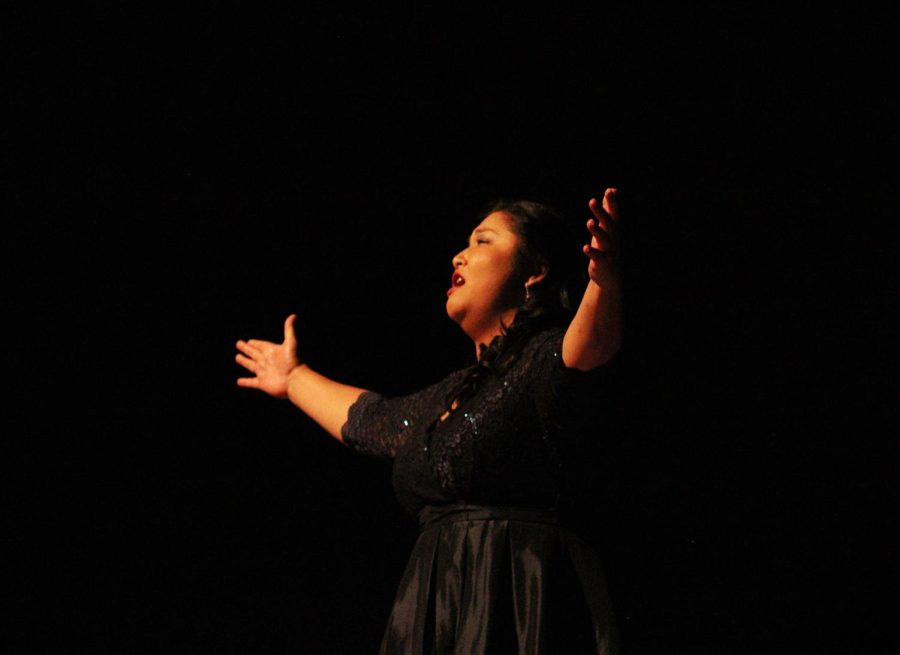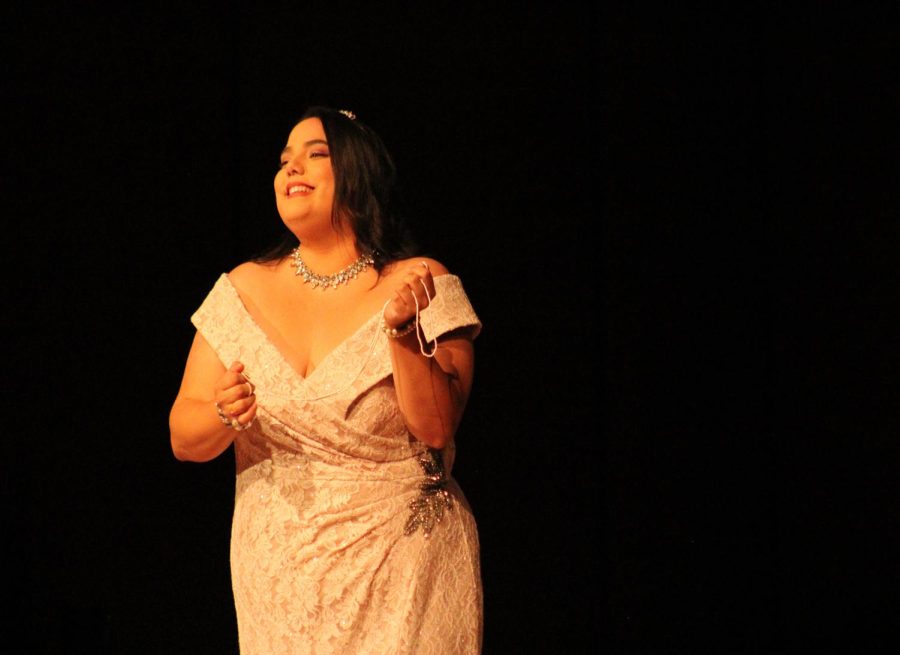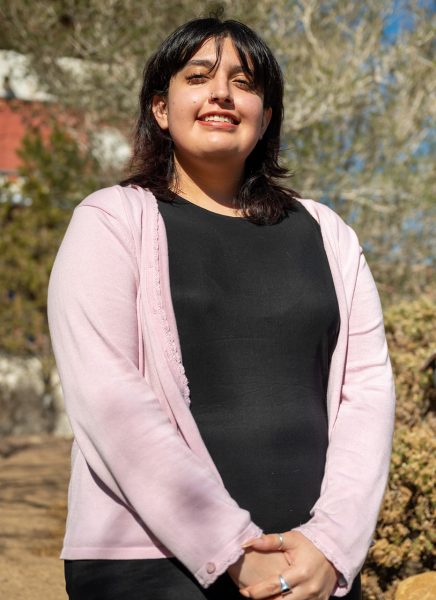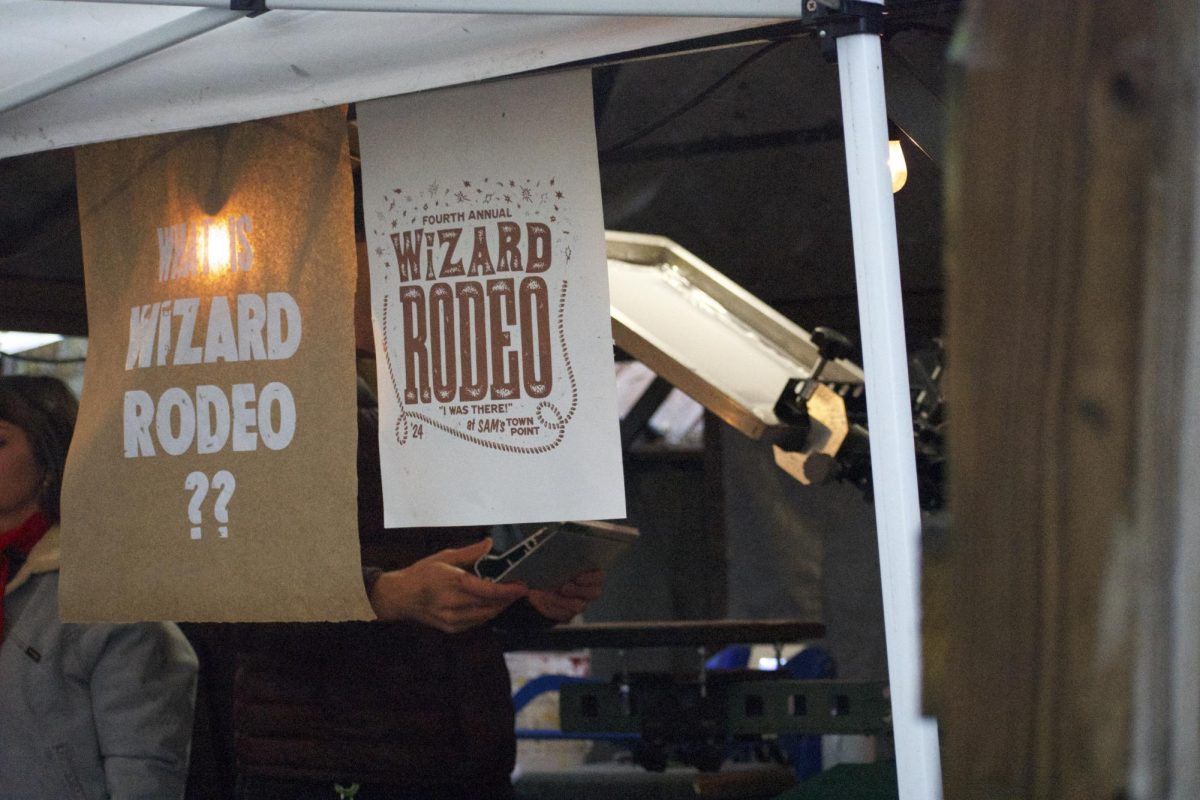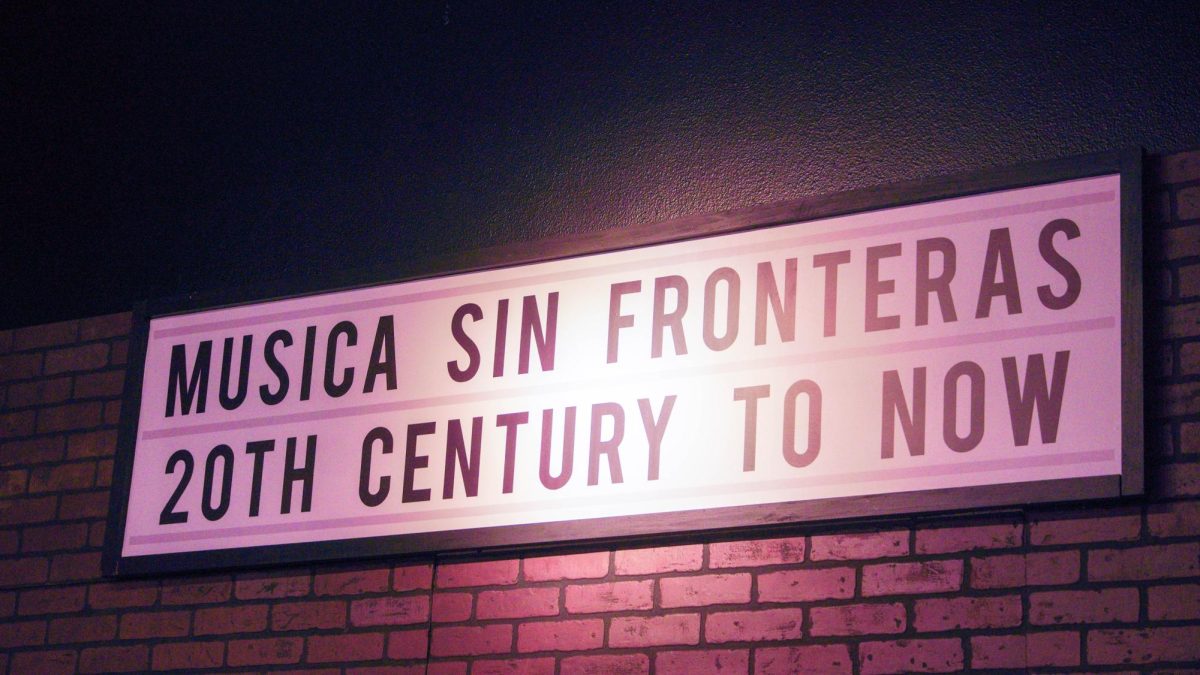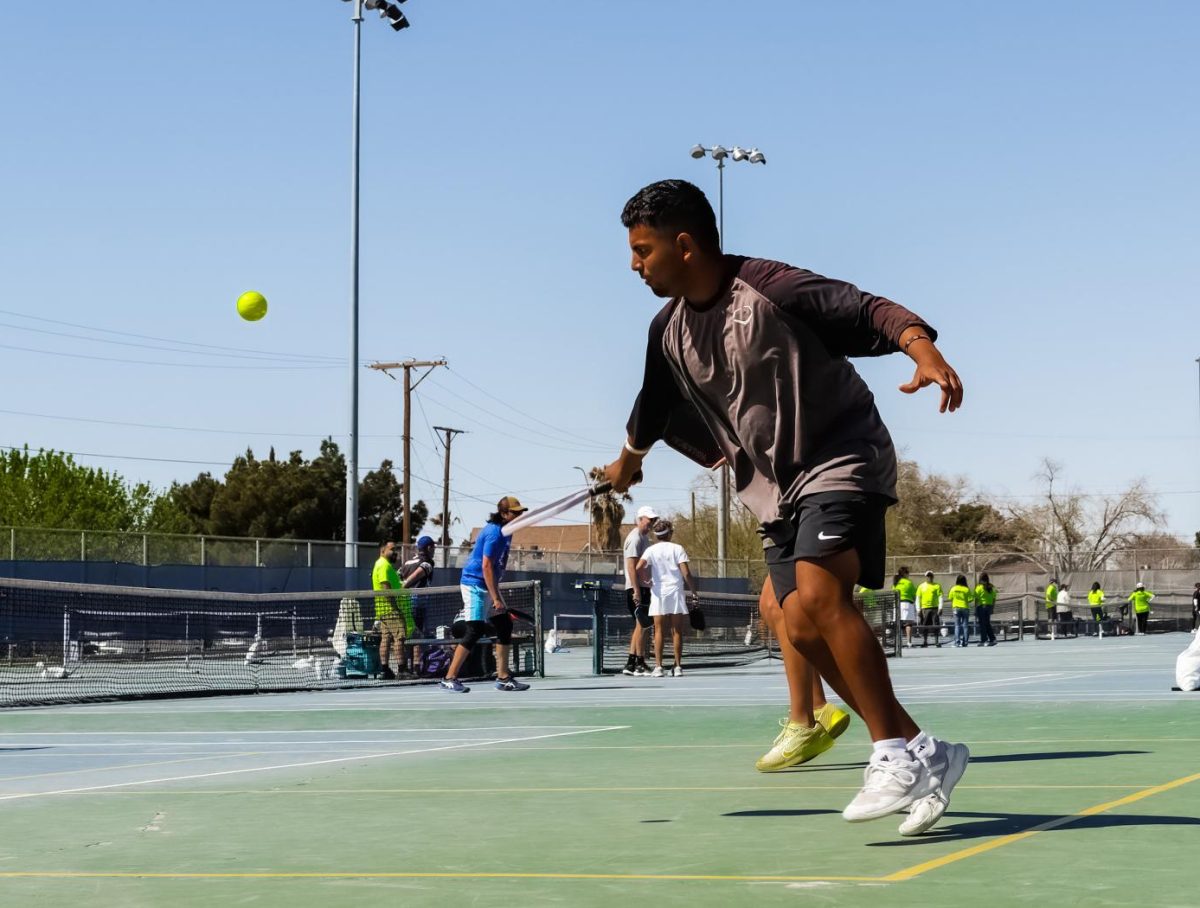With all the musical and theatrical shows that have been hosted at the Fox Fine Arts Recital Hall, Opera UTEP did not disappoint with their addition of “Solos and Duos” to an already impressive calendar of performances. The concert consisted of Broadway, zarzuela, operettas and opera pieces that were sung by various talented solo and duet acts.
While this event was held on separate dates at different times, the overall program was the same for both days. For Nov. 3 and Nov. 6, a QR code was available for viewers to scan so that they could follow along with each song in the lineup.
The promotion for “Solos and Duos” initially painted the event as something that was strictly limited to a standard opera or Broadway show. However, each composition presented was done with a wonderful sense of theatricality that helped bring each piece to life. To make the audience experience even more interesting and informed, there were also announcers who explained the meaning or story behind the music prior to the start of the songs.
The first four performances of the afternoon were “Vainement, ma bien aimée (In vain, my beloved” by musician Édouard Lalo and lyricist Édouard Blau, “Batti, batti o bel Masetto” by musician Wolfgang A. Mozart and lyricist Lorenzo da Ponte, “Via resti servita (At your service)” by musician Mozart and lyricist da Ponte “Sull’aria (On the breeze) by musician Mozart and lyricist da Ponte. The shows they came from were “Le roi d’Ys (The King of Y’s),” “Don Giovanni” and “Le nozze di Figaro.”
Each singer, even when in a duo, was able to showcase their vocal skills and enhance the performance with bold facial and body expressions.
In her interpretation of “O zittre nicht (Don’t be afraid)” from the show “Die Zauberflöte” by musician Mozart and lyricist Emanuel Schikaneder, Cristina Jones completely embodied her character The Queen of the Night. Not only was she able to manage a perfect crescendo to fit the story behind the song, but the fluidity of her movements on stage added to the desperation she portrayed for the song. Having her reach for the audience or curl in on herself while she belted the words helped translate the feelings of a song that was originally composed in German.
That performance was followed with “Son nata a lagrimar (I was born to cry)” by musician G.F. Handel and lyricist Nicola Francesco Haym. This was performed as a duet from the show “Giulio Cesare in Egitto” and was made moving given the harmonies managed between Sesto (Daphne Serna) and Cornelia (Erin Zuzunagha).
The absolute highlight of the night had to be the performance of “Glitter and be Gay” by musician Leonard Bernstein and lyricist Richard Wilbur. Originally from the show “Candide” in her interpretation of Cunegonde, Angela Escobar has the audience hooked from the moment she walked on stage.
Opera is already a genre that requires its singers to command the room with vocals ranging from pianissimo to fortissimo. From her sparkly dress to her playful iteration of the character, Escobar managed to balance her strong vocals with her stage presence. She used the entirety of the stage and her vocal control to naturally manage the more spoken aspects of the song. Having her end the performance with a maniacal laugh had viewers laughing along with her.
The next two songs were both from the show “Street Scene” and required a few singers not initially listed on the program to stand in for the original musicians. First was “We’ll go away together” by musician Kurt Weill and lyricist Langston Hughes, then “Lonely House” by the same people.
While the performances were still amazing despite the sudden change, one professor made a quick comment explaining the situation and thanking all those who made the event possible.
The final three songs made a beautiful conclusion to the concert as they each portrayed some form of comedy, romance or story of hope. From the show “Guys and Dolls” was the performance of “I’ll Know” by musician Frank Loesser and author Jo Swerling and Abe Burrows. The duet between Sarah Brown (Ariah Labrado) and Sky Masterson (Texas Hart) was incredibly charming and the pair managed to balance Labrado’s more operatic vocals with Hart’s theatrical one.
The song “Que alegre es el cielo (How happy is the sky)” from “Bohemios” by musician Amadeo Vives and lyricists G. Perrin and M. Palacios was next. The group that performed this piece emphasized the romance and humor within the story through powerful vocals.
The final song was “My Dear Marquis” from “Die Fledermaus” by musician Johann Strauss Jr. and translators Ruth and Thomas Martin. This performance was especially entertaining given the comedy behind the story and the harmonies presented by previous performers. Having the whole chorus on stage made the finale very fun.
For more information about events hosted by the UTEP music department visit utep.edu/liberalarts/music/events/. If you would like to support the opera program, you can make donations at givingto.utep.edu.
Meagan Garcia is the arts & culture editor and may be reached at [email protected].



